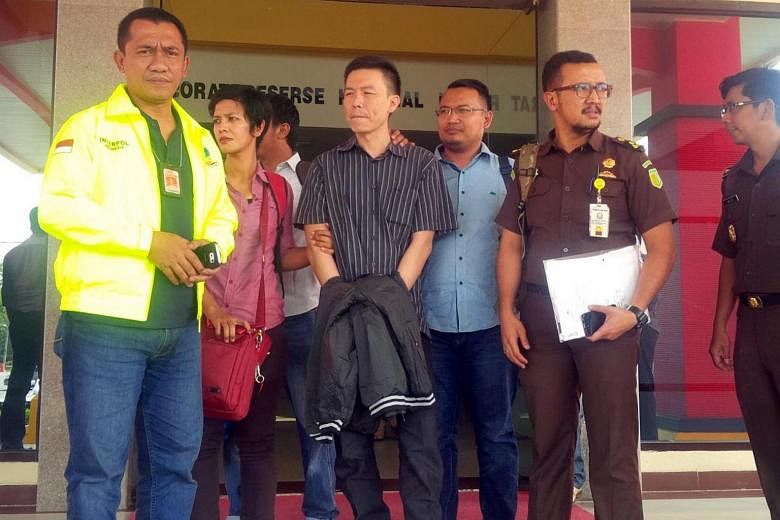WASHINGTON - A Singaporean man accused of helping to export technology to Iran that was later found in unexploded improvised explosive devices (IED) reportedly entered a not guilty plea in a Washington federal court on Monday (April 4) .
Court records show Lim Yong Nam, 42, was ordered held without bond at his first court appearance, Associated Press reported.
Lim's defence lawyer Shanlon Wu could not be immediately contacted for a comment, according to the report.
Lim was extradited to the United States from Indonesia, where he had been detained for the past one and a half years. He was indicted in the US in 2010 on charges including smuggling, illegal export and making false statements to the government.
Lim and several other defendants are charged with helping to export to Iran in 2007 and 2008 thousands of radio frequency modules that were purchased from an unnamed Minnesota company, and with lying to the US government that Singapore was the end destination of the goods, according to the indictment.
It said 6,000 modules were illegally exported to Iran in five shipments.
"The indictment alleges that Lim conspired to defraud the United States and defeat our export controls by sending US-origin components to Iran instead of their stated final destination of Singapore," said Assistant Attorney General for National Security John Carlin. "Several of those components ultimately ended up in unexploded improvised devices in Iraq."
Director of US Immigration and Customs Enforcement (ICE), Sarah Saldana, said: "Improvised explosive devices (IEDs) have injured or killed thousands of military service members overseas. The US-made products... Lim is accused of illegally exporting were found in several of the devices used against America's warfighters."
Lim claimed he was unaware of restrictions on US exports to Iran, even though he had actually contacted a co-defendant "no less than six times" to discuss the prohibitions and prosecutions arising from the acts, according to the indictment.
Prosecutors said at least 16 of the modules, which have a range of commercial applications, were later found by coalition forces as part of unexploded IEDs in Iraq.
US officials have blamed Iran for supplying Shiite militias with lethal explosives directed against US service members in Iraq. But Iran has said the claims are baseless.

